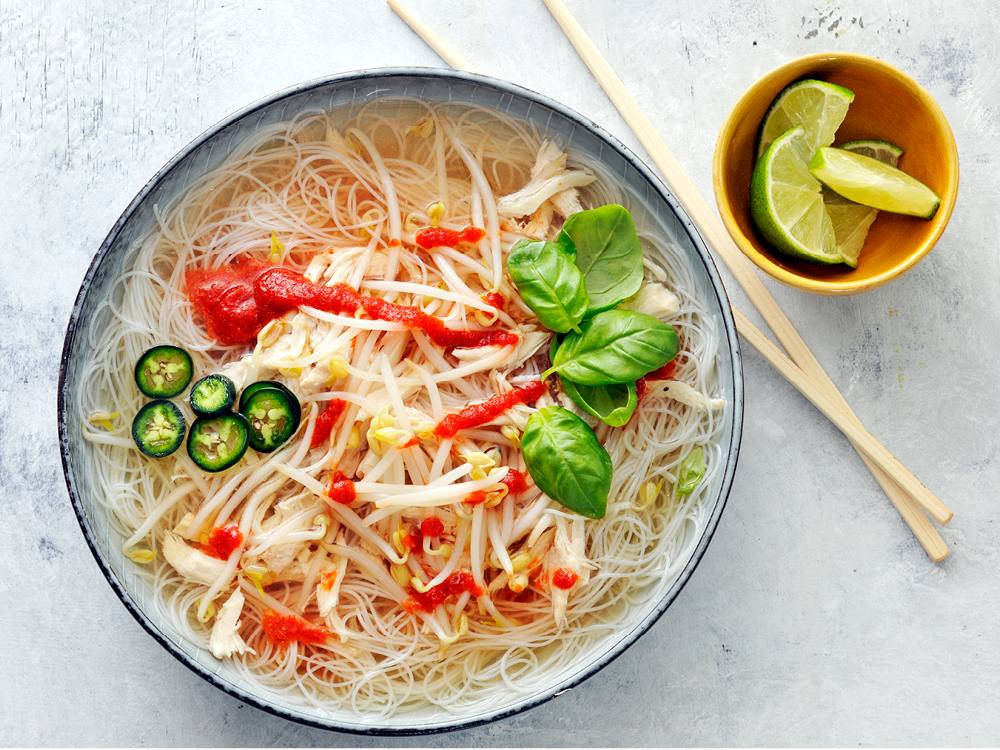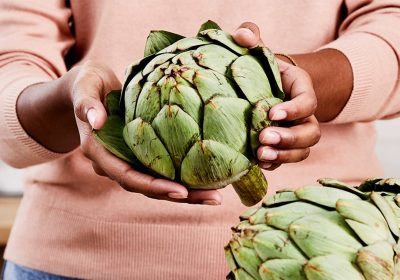1) Cashews
More than just a tasty bar snack, cashews pack major benefits for mind and body in each bite. Rich in protein and iron (a single ounce packs in 10% of the daily recommended amount for each), cashews are a great portable energy source that can help curb fatigue before it starts. These nutritious nuts also have Vitamin B6 and tryptophan, which stimulate the production of serotonin, a chemical that balances mood and promotes healthy sleep patterns. Avoiding dairy? Try topping your cereal or morning coffee with creamy cashew milk. Cashews can also be made into a dairy-free, paleo-friendly cheese alternative, like in this kid-approved vegan macaroni and “cheese”.
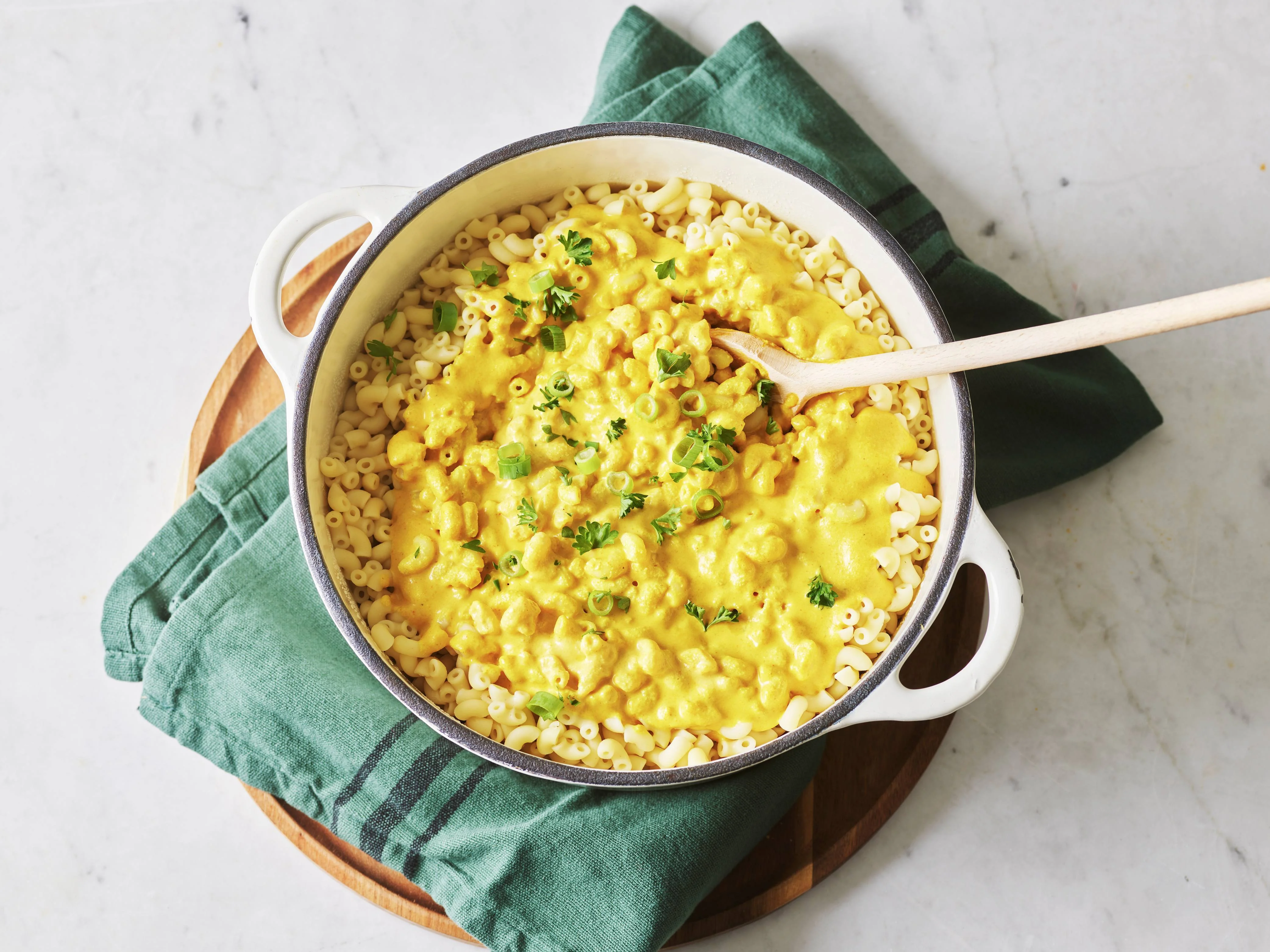
Oily fish rich in polyunsaturated fat, like salmon, tuna, and sardines, is good for both cardiovascular and mental wellness. Along with lowering blood pressure, improving circulation, and reducing inflammation – three pillars of heart health – studies have linked the omega-3 fatty acids found in fish to better brain functioning, sharpened memory, and even reduced levels of anxiety and depression. For a double dose of feel-good flavor, try this superfast salmon recipe with spicy salsa made from pineapple, another source of relaxation-promoting tryptophan.
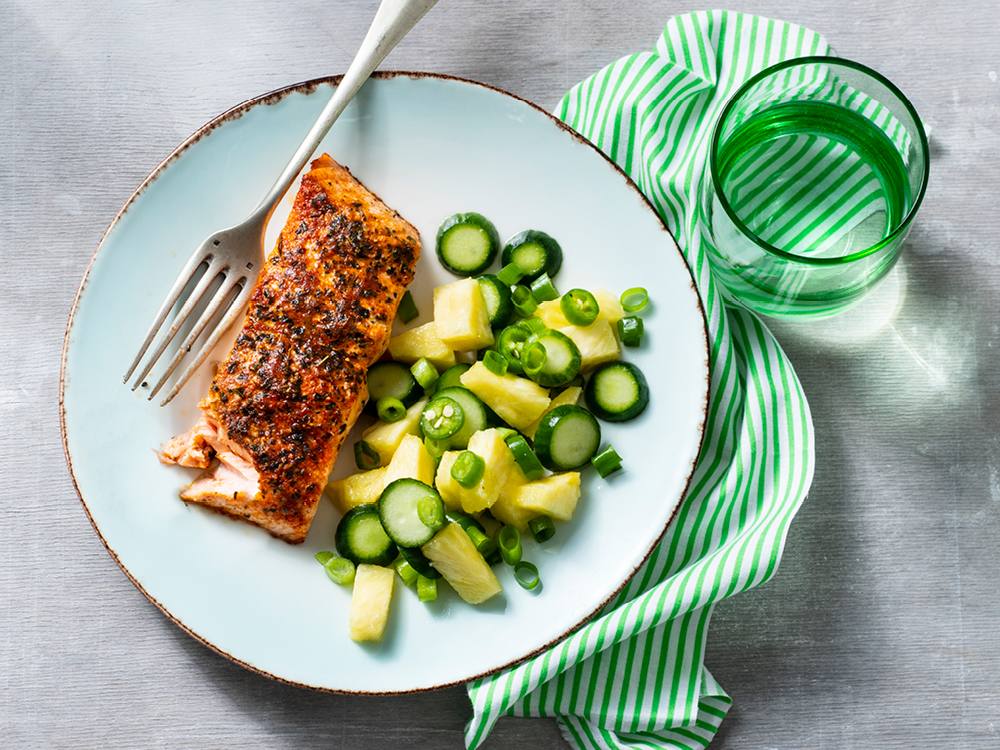
Loaded with vitamins and minerals (including over 100% of the daily recommended amount of vitamins A, C, and K per serving), kale is one of the most nutrient-dense foods on the planet. The antioxidants, fiber, calcium, and – yes – even protein found in this mighty green support virtually every part of the body. Kale is a smart choice when you’re feeling tense or recovering after a tough workout, as the magnesium works to relieve tension in the body and relax muscles. The folate in kale, which promotes healthy cell growth and function, has also been linked to a reduced risk of depression. If you’re not a fan of eating the leaves raw, try them sauteed with garlic, blended into a fruit smoothie, or in this plant-powered pesto served with the protein of fried eggs.
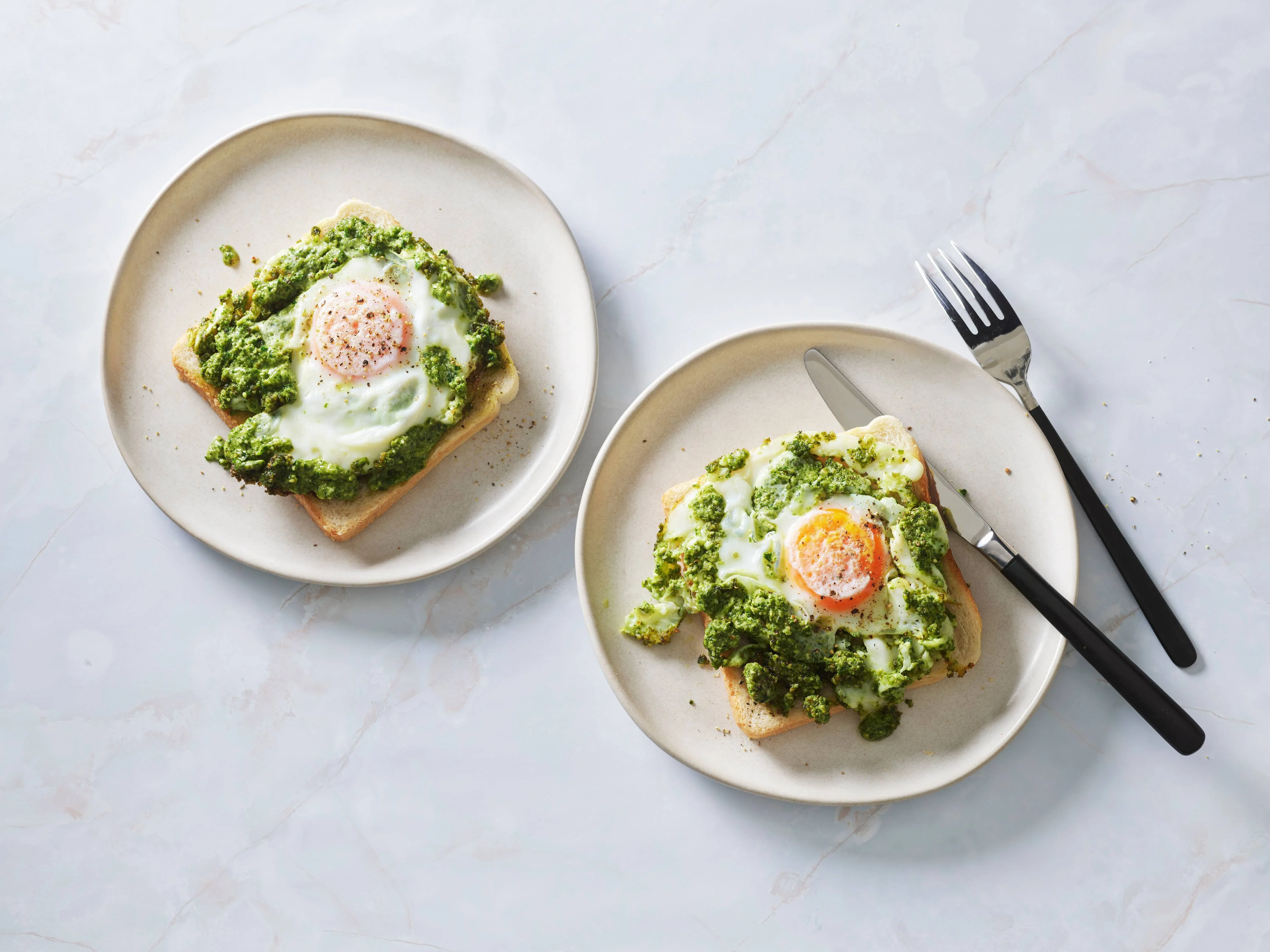
There are plenty of reasons to love chocolate, including its numerous health benefits. Dark chocolate, aka chocolate with at least 50% cocoa solids, is a rich source of fiber, iron, magnesium, and other minerals. If dark chocolate is your go-to for combatting the midafternoon slump, it’s more than just the delicious taste giving you a pick-me-up. Eating dark chocolate raises your endorphins, which work to increase feelings of pleasure and well-being and reduce pain and discomfort. Take your chocolate obsession to the next level with this decadent double chocolate loaf that offers twice the good vibes with dark chocolate chunks and tryptophan-rich bananas.
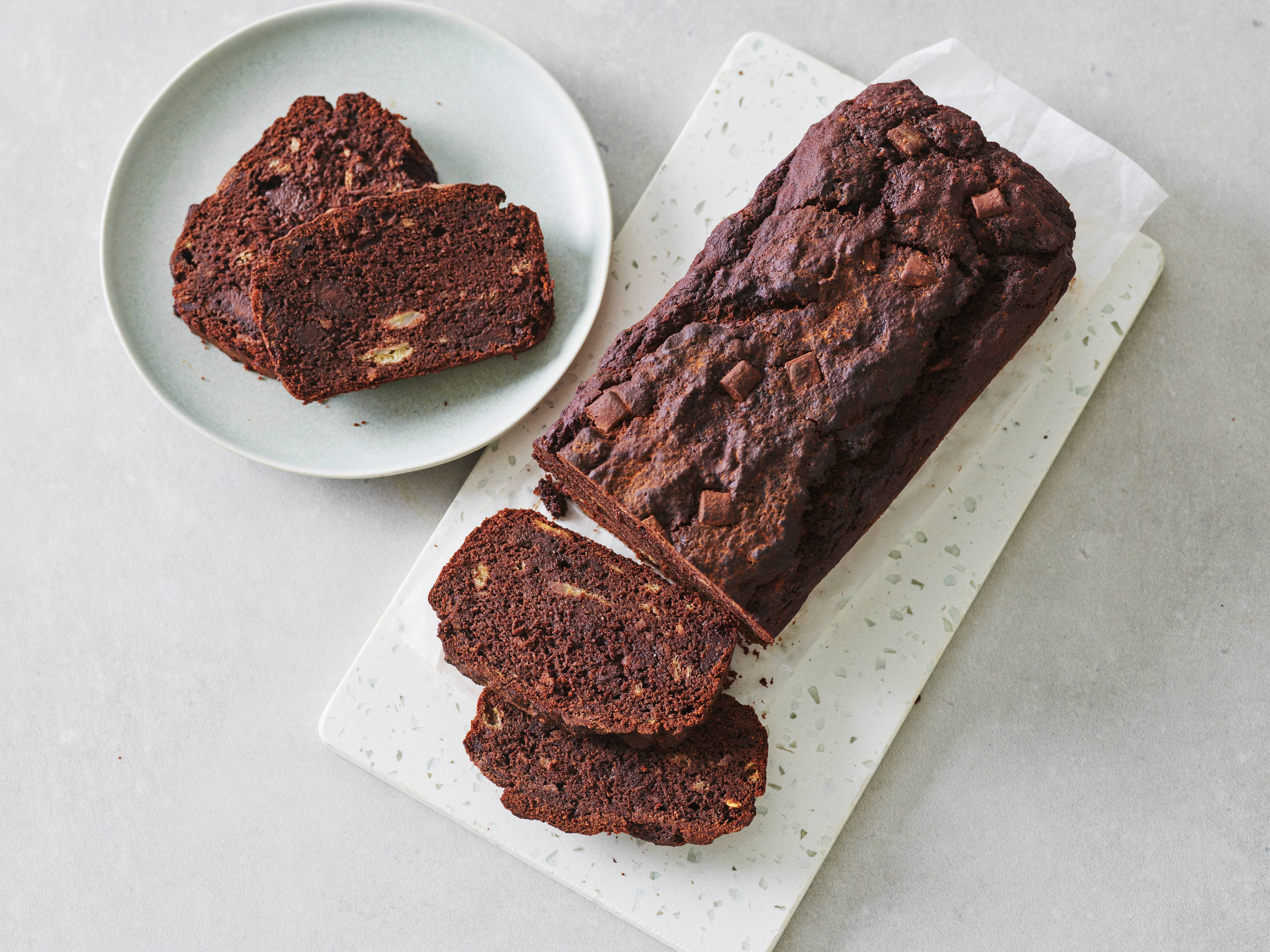
Bell peppers are another versatile, nutrient-rich superfood that offer big time benefits for physical and mental health. Clocking in at just 37 calories per medium-sized pepper, this colorful fruit (despite its vegetal flavor, bell peppers are technically fruit in the same family as tomatoes and eggplant) is packed with fiber, potassium, and mood-boosting vitamin B6. They’re also abundantly rich in vitamin C, offering more than 250% of the daily recommended amount per pepper (nearly triple the amount found in a medium orange). That’s great news for both your immune system and your brain, as vitamin C helps to improve alertness and memory. For a family-friendly meal certain to bring smiles at the dinner table, try these plant-powered stuffed peppers with cauliflower rice, beans, and melty cheese.
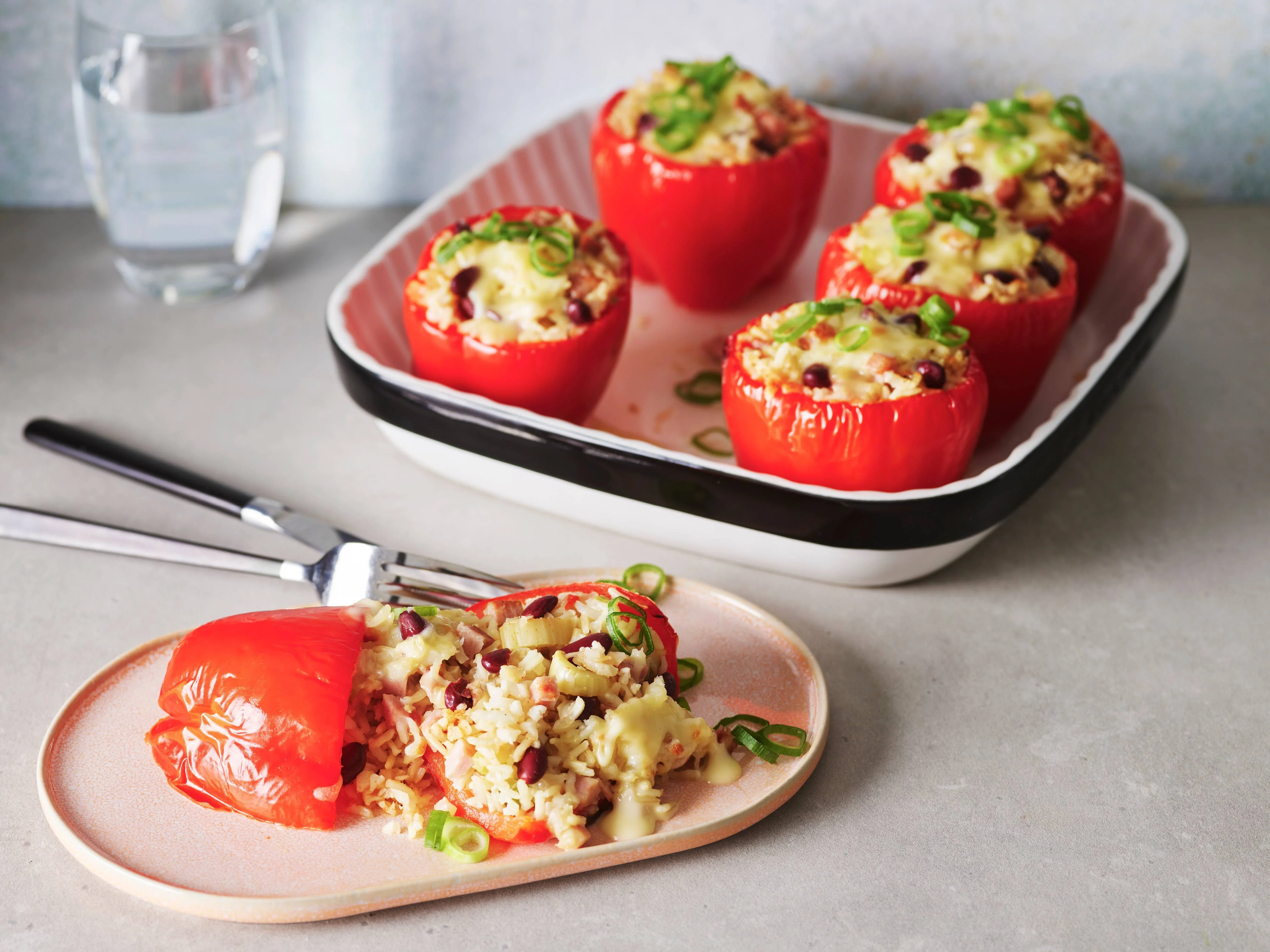
There’s a link between digestive health and mental health, which means including gut-friendly probiotics in your diet can have significant effects on mood. Improved digestion means less stress in your belly and your brain. Kefir, a fermented dairy drink with a consistency similar to thin yogurt, is an abundant source of belly-benefitting probiotics. Drink it straight, blend it into smoothies, or treat your tummy and your taste buds to this creamy kefir panna cotta with vitamin-rich berries.
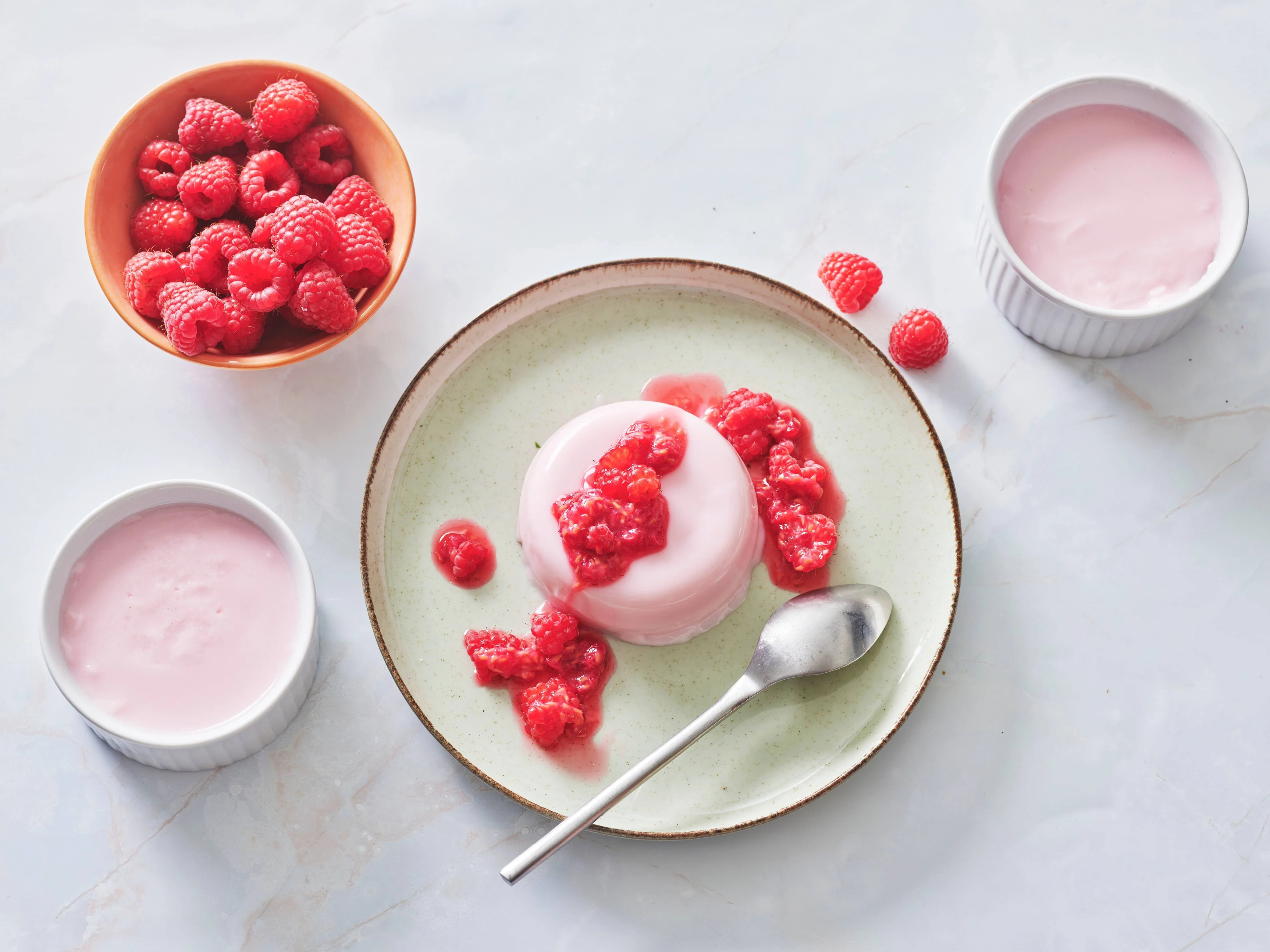
When it comes to oil, not all fats are created equal. Unlike other refined oils like vegetable and canola, olive oil is rich in antioxidants and has been linked to better heart health. The monounsaturated fat found in olive oil also helps the body produce feel-good serotonin and improves nervous system functioning. It’s a cornerstone of the Mediterranean diet, which has been studied for its numerous health benefits, including a reduced risk of depression. Olive oil is a go-to for sauteing and pan frying, just be sure to reserve the pricier extra virgin for uncooked preparations like dressings and sauces. Brain-boosting olive oil can also shine in baked recipes, like these tender, flaky herbed biscuits.
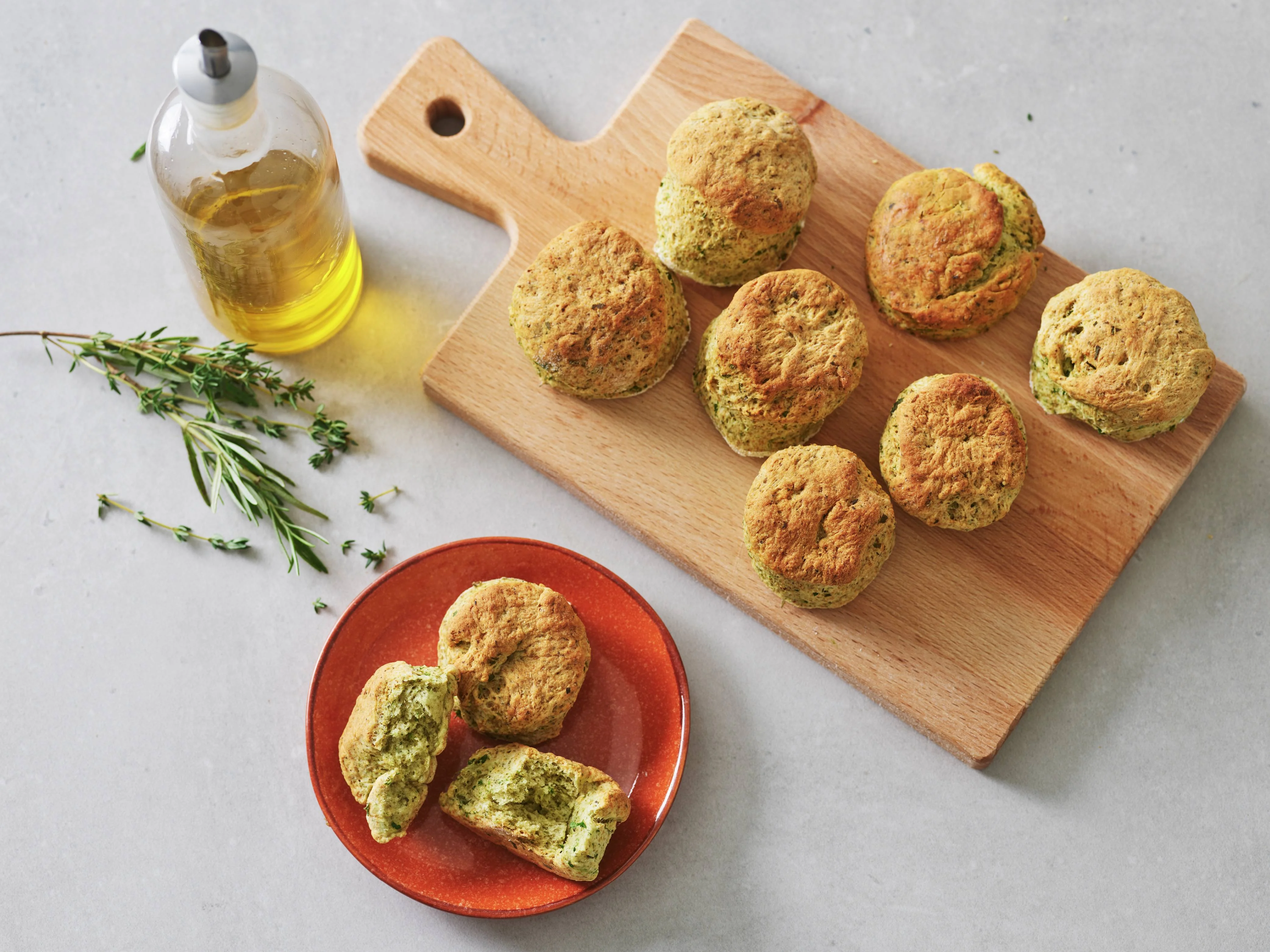
If the unmistakable aroma of cinnamon brings a smile to your face, it’s not just nostalgia for holiday baking. Eating, and even smelling, cinnamon makes the mind feel clearer, happier, and more alert. Cinnamon also helps to regulate blood sugar, which helps to stabilize energy and ward off fatigue. Evidence also suggests that this powerful spice can contribute to lower blood pressure and even reduced risk of Alzheimer’s. Cinnamon is a go-to for adding warm spice to baked goods, oatmeal, and hot beverages like coffee and tea. Or try the flavor of cinnamon for added complexity in savory dishes, like these comforting Swedish meatballs with noodles.
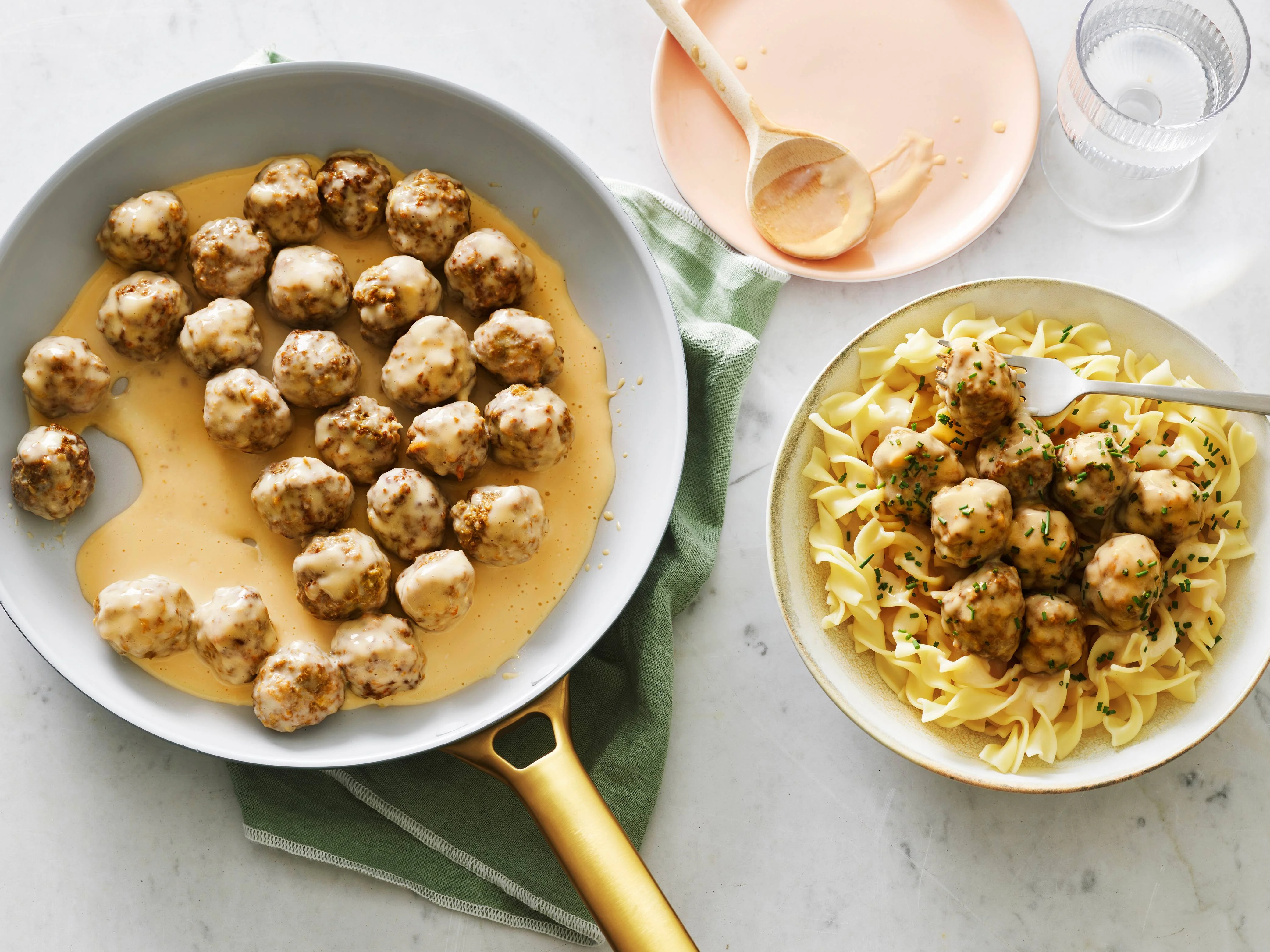
Spicy, fresh ginger gives a boost to body and mind, including the immune system. It’s good for your gut, helping to stimulate digestion and calm nausea, as well as your heart. Antioxidant-rich ginger has been linked to lower blood pressure and a reduced risk of heart disease. Ginger is always a good call when you need a mood lift, as it stimulates serotonin production and promotes relaxation in the body. Dive into a soothing mug of ginger tea the next time you’re coming down with a cold or just a case of the winter blahs. Ginger also adds distinctive, warm spice to Asian-inspired meals, like this authentic-tasting faux chicken pho.
